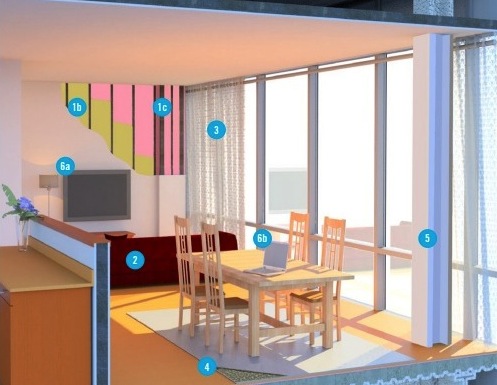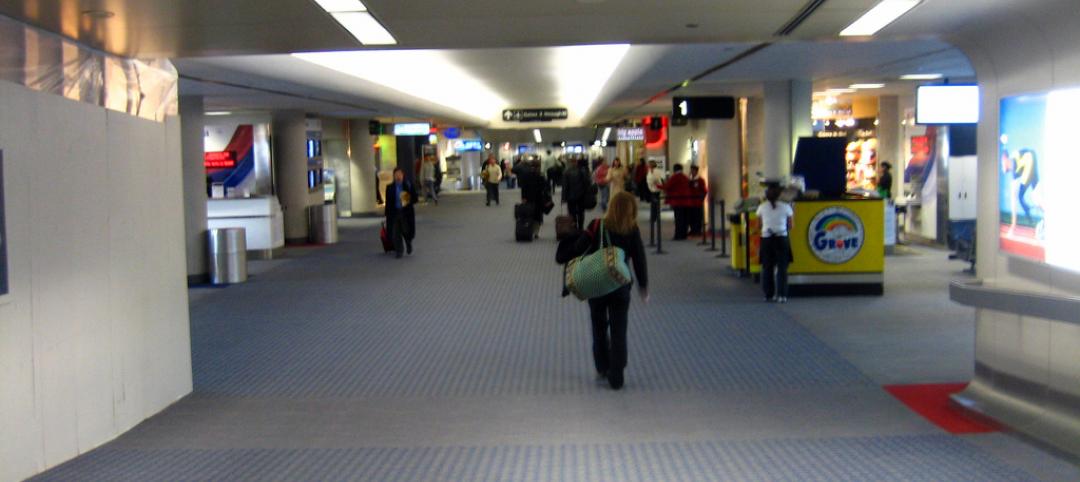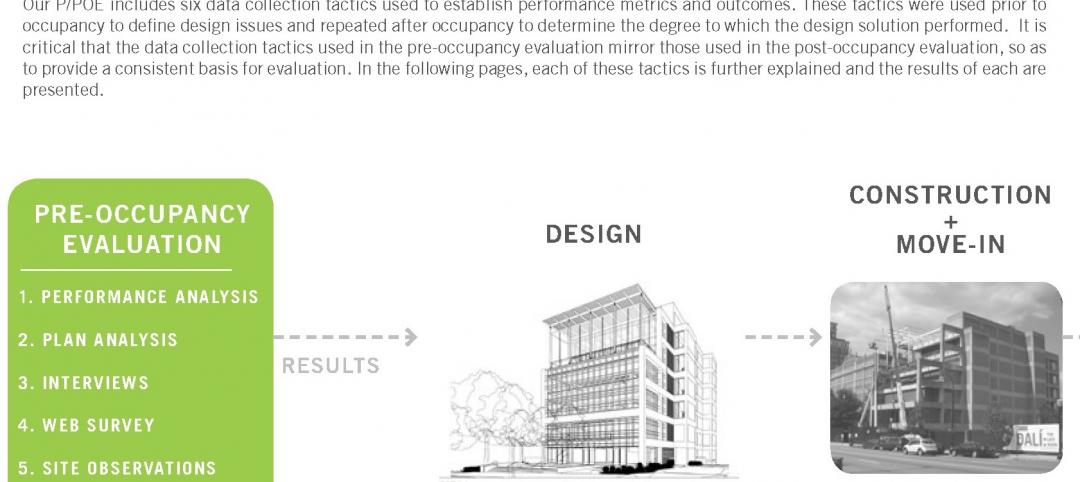Global architecture and design firm Perkins+Will has released new research in response to the need for architects and interior designers to develop a better understanding of flame retardants and their impact on health.
The white paper, “Healthy Environments: Strategies for Avoiding Flame Retardants in the Built Environment,” was developed by Perkins+Will’s Healthy Materials Group and Science Fellow Michel Dedeo. It identifies both new and existing opportunities to design healthier buildings without compromising fire safety or code compliance.
Flame retardants in the built environment are associated with a range of health impacts including cancer, endocrine disruption, and neurodevelopmental problems. Many flame retardants are persistent, bioaccumulative, and/or toxic, and their use in buildings is largely avoidable.
Perkins+Will’s white paper includes a list of 193 flame retardants, including 29 discovered in building and household products, 50 discovered in the indoor environment, and 33 discovered in human blood, milk, and tissues.
The research can help designers identify which products should be subjected to extra scrutiny during the design and construction process and provides options for less hazardous alternatives. The white paper also helps to identify gaps in current understanding of the sources and paths of chemical exposure.
“We want to bring awareness to this important issue impacting the health and wellbeing of building occupants,” said Perkins+Will’s Healthy Materials Leader Suzanne Drake. “The research we have conducted is a valuable resource for identifying healthy alternatives to flame retardant building materials.”
Related Stories
| Dec 15, 2014
HOK-designed Anaheim Regional transit hub opens, expected to serve three million per year
ARTIC’s flexible design ensures that it can serve as a southern terminus for California’s future high-speed rail system.
| Dec 8, 2014
Moshe Safdie wants to reinvent airports with Jewel Changi Airport addition
A new addition to Singapore's Changi Airport, designed by Moshe Safdie, will feature a waterfall and extensive indoor gardens.
| Nov 19, 2014
The evolution of airport design and construction [infographic]
Safety, consumer demand, and the new economics of flight are three of the major factors shaping how airlines and airport officials are approaching the need for upgrades and renovations, writes Skanska USA's MacAdam Glinn.
| Nov 18, 2014
Grimshaw releases newest designs for world’s largest airport
The airport is expected to serve 90 million passengers a year on the opening of the first phase, and more than 150 million annually after project completion in 2018.
| Nov 14, 2014
JetBlue opens Gensler-designed International Concourse at JFK
The 175,000-sf extension includes the conversion of three existing gates to international swing gates, and the addition of three new international swing gates.
Sponsored | | Nov 12, 2014
Eye-popping façade highlights renovation, addition at Chaffin Junior High School
The new distinctive main entrance accentuates the public face of the school with an aluminum tube “baguette” system.
| Oct 26, 2014
New York initiates design competition for upgrading LaGuardia, Kennedy airports
New York Gov. Andrew Cuomo said that the state would open design competitions to fix and upgrade New York City’s aging airports. But financing construction is still unsettled.
| Oct 12, 2014
AIA 2030 commitment: Five years on, are we any closer to net-zero?
This year marks the fifth anniversary of the American Institute of Architects’ effort to have architecture firms voluntarily pledge net-zero energy design for all their buildings by 2030.
| Sep 24, 2014
Architecture billings see continued strength, led by institutional sector
On the heels of recording its strongest pace of growth since 2007, there continues to be an increasing level of demand for design services signaled in the latest Architecture Billings Index.
| Sep 22, 2014
4 keys to effective post-occupancy evaluations
Perkins+Will's Janice Barnes covers the four steps that designers should take to create POEs that provide design direction and measure design effectiveness.
















